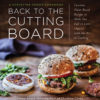The Black Swan, by Nassim Taleb, is the best book on statistics I ever read. OK, that may sound like faint praise. But the book is one of the best books I’ve read in years. Brilliant, eccentric, and prescient, this book speaks to me in particular because of my stint in the PhD program in finance at the University of Chicago. I dropped out for exactly the reasons Taleb discusses in the book – the more I learned about mathematical finance, the more I realized how disconnected it was from reality (full disclosure: I also sort of sucked at higher math). If you haven’t read it, you want to, especially if you are in publishing.
The essence of Taleb’s theory is straightforward. Rare and unpredictable events, he theorizes, have an enormous impact on business, finance, on life in general. This might seem to be unexceptional, except that all of statistics, economics and finance (to name a few areas) are based on the assumption that this isn’t true. Everything you’ve heard about the normal curve or law of large numbers, or even the concept of an “average” is based on the idea that once you have enough data – say over a hundred data points – you basically know what’s going on in terms of risky events, that your average is going to be stable etc. The whole idea of finding an average from data, for example, goes out the window if one observation (once you already have lots of observations) can radically change your average. Yet in real life this happens all the time (half the growth in the stock market since WWII, for example, happened in 10 days).
Some businesses are negative black swan businesses. They seem to be making more than they really do make, because they are exposed to rare, but huge, downside risks (think banks and reinsurers). Publishers are exposed to some negative black swan risk (i.e. bankruptcy of major distributor or retailer) but, in general, publishing is a positive black swan business. The rare events can make publishers a lot of money. In fact, without the rare events (i.e. Harry Potter, Da Vinci Code) they barely make any money at all.
The essence of black swans is that they are unpredictable; if they were predictable they wouldn’t be black swans. No one knows they are coming, although everyone can see their inevitability in retrospect. Consider the numerous retroactive explanations for the success of Harry Potter, when, in advance, the original novel was rejected by every publisher that saw it but one, and that one (Bloomsbury) paid 2500 pounds and printed 500 copies. No one saw it coming.
So the solution is to design your publishing house so as to maximize your exposure to positive black swans and minimize your exposure to negative ones. Easy, right?
Not so much. It’s tricky to figure out exactly what to do about Black Swan theory, but here are a few ideas to start with:
- Have a healthy respect for what you don’t know. Your management processes will pressure you to predict how each book will do, and allocate resources accordingly. Don’t confuse this with the idea that you know what will happen. Allocate a bit more resources to your small books, and a bit less to your big ones, because you are less sure of what is small and what is big than you think.
- Try lots of marketing ideas, modestly, and pay careful attention to what works –noticing and building on success is critical (Drucker talked about this decades ago.) Black swans can die on the vine if you don’t notice they are happening.
- Build lots of relationships and stay open. Black swan opportunities can pop up anywhere.
- When acquiring books, be particularly open to books that have many ways to succeed.
- Don’t pay big advances. What big is depends on the house and the book, but if you are in an auction, it’s quite likely that you will pay an advance with a bigger negative black swan than positive.
- Value energized and creative authors, who tend to open up more black swan opportunities.
- Place a lot of small bets, rather than a few large ones.
- Be open to the editorial beliefs of your authors and don’t railroad them. There are countless examples of an author rejecting the editorial suggestions of his editor, only to have a big success (Taleb’s first book, Fooled by Randomness, apparently is an example of this.)
- Build robustness into your business. Don’t overleverage, don’t make big bests on certain things happening, even if these things seem likely.
- Collect options, if you can get them free or very cheap. Options on the author’s next book, options on foreign rights, options for movie rights when a movies seems very unlikely, etc. Taleb believes that people, in general, undervalue options that are only valuable in rare cases. And remember that not all options are contractual. Building relationships, helping out others in the industry (and beyond), etc. are ways of creating options.
Here is Taleb at his iconoclastic best:








I think you would enjoy James Gleik’s book, “Chaos”.
In it he explains, in layman language, Chaos math which is looking for the patterns around the normal curve rather than disregarding events that fall too far away from the average.
He and other maore learned Chaos -isians offer a very damning criticism of maths since the early 20th Century when processing data to find the closest approximation to reality forced most science and certainly economics into a belief that linearity meant certainty.
I recall being asked to accept at university that supply and demand were solely influence by price. “What..” said I “about ice cream then? Surely the weather is a prime factor in influencing demand?”
” Ah yes,” came the learned answer.” But we can’t measure that so we disregard it.”
Chaos math and theory provided the RIGHT answer to my question, and many others thoughout life. It is the small variations in data that matter, not the regression curves, means, medians or modes.
“Look after the pennies, and the pounds will look after themselves” as my Grandmother would say. Indicating she had her eye on the main factor…
I read that book many many years ago. I remember it being fascinating, but not much else…